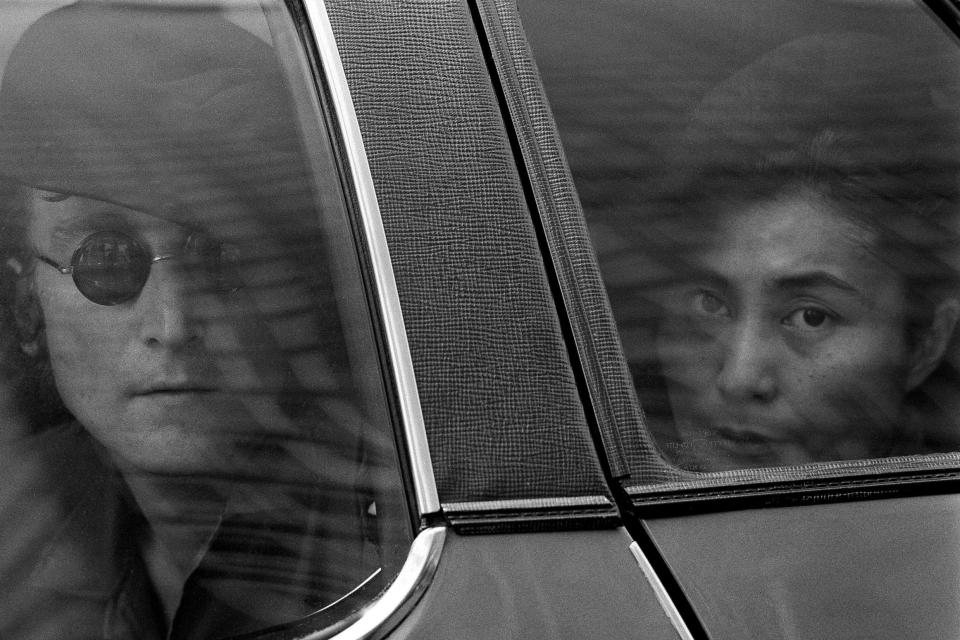Weekend's best TV: Imagine all the people who adored Lennon...then spare a thought for David Cassidy

There’s a remarkable scene in the middle of Michael Epstein’s sprawling documentary (Saturday, Channel 4, 8.30pm) about the background to John Lennon’s Imagine.
Around it, there is all the usual stuff that you’d expect to see in a film about a rock deity: silver-haired men in empty rooms, dredging their memories for significance, a bit of contextual archive, some political blah. And then, Curt Claudio appears.
Who is Curt Claudio? Nobody seems very sure. Oddly, for someone who appears in a film about John Lennon, there seems to be little evidence of his broader existence.
Yet here he is: a handsome, rather bewildered young man, introduced as a shell-shocked Vietnam veteran, who has turned up at Lennon’s country house, Tittenhurst, near Ascot.
Claudio is convinced Lennon’s songs speak to him personally. But Lennon, on his doorstep — and in front of a camera — explains that he is mistaken. “I’m just a guy who writes songs,” Lennon explains. “I’m just a guy, man.” And then he invites Claudio into his house for something to eat.
As with all things Beatles-related, there are theories about Claudio (the footage appeared in an earlier film about Imagine). But whatever the truth about that moment, it it is both charmingly innocent, and rather chilling.
What else do we learn about this guy Lennon, who writes the songs? Not so much. There is some nice home movie footage (eating breakfast, boating on the Tittenhurst lake), and a hint of familial frustration from Lennon’s neglected son, Julian. But the undertone of this officially sanctioned film seems to be the importance of Lennon’s wife, the conceptual artist Yoko Ono.
The song, Imagine, was like her speaking through John, someone says. Lennon himself suggests (in a 1980 radio interview) that the lyric and concept came from Yoko. “The fact that John and I met was to do this song,” Yoko suggests. Occasionally, the mood of fatalistic grandiosity is punctured. Of Lennon, the photographer David Bailey observes: “He was an arsehole. So I thought he was great.”
The inside story of David Cassidy's explosive rise to fame, his conflicted relationships with his celebrity, and the legacy he left to music. David Cassidy: The Last Session. Tonight, 9pm. @BBCFour. https://t.co/C7nU7VAg4M
— BBC Four (@BBCFOUR) 23 November 2018
For a moment or two in the early Seventies, David Cassidy was bigger than the Beatles. He achieved fame as the prettiest member of The Partridge Family, a fictional band in a family sitcom. Cassidy was never comfortable with his fame, and his attempts to be taken seriously as a musician attracted only a fraction of the interest he achieved in his manufactured youth.
Cassidy died a year ago, as this documentary (Friday, BBC Four, 9pm) was being made, which adds piquancy to a situation which was already tragic.
The film is similar to I’ll Be Me, the 2014 documentary showing country singer Glen Campbell’s battle with dementia. Cassidy is said to be suffering from the same illness but there is something odd about his meetings with doctors. Is he telling the truth? As he struggles to record an album in tribute to his late father, the sense of gloom thickens, and Cassidy’s pain becomes apparent.
It was always there, of course. There’s a clip of Michael Barratt interviewing the teen idol, and comparing him to processed cheese. “I’d like to think I control a lot of my own destiny,” Cassidy replies, with more hope than conviction.

 Yahoo News
Yahoo News 